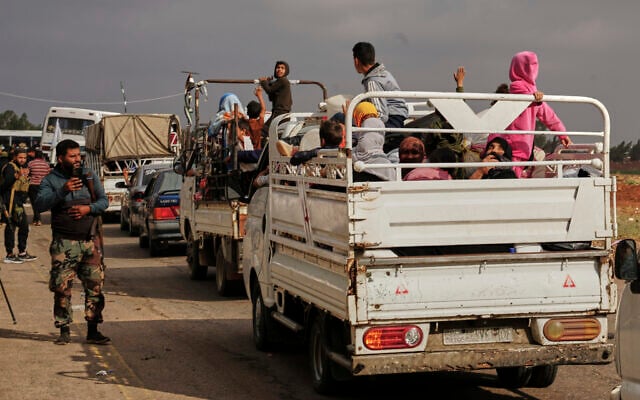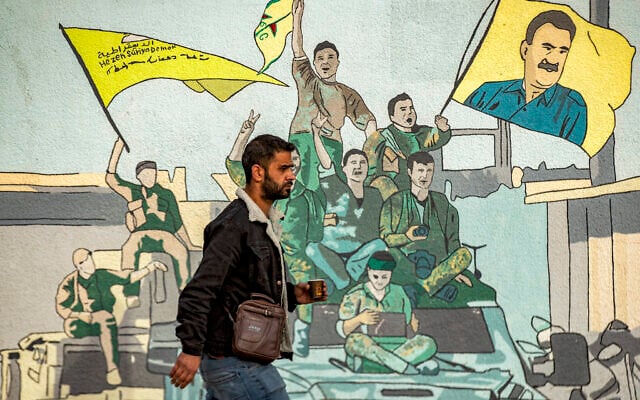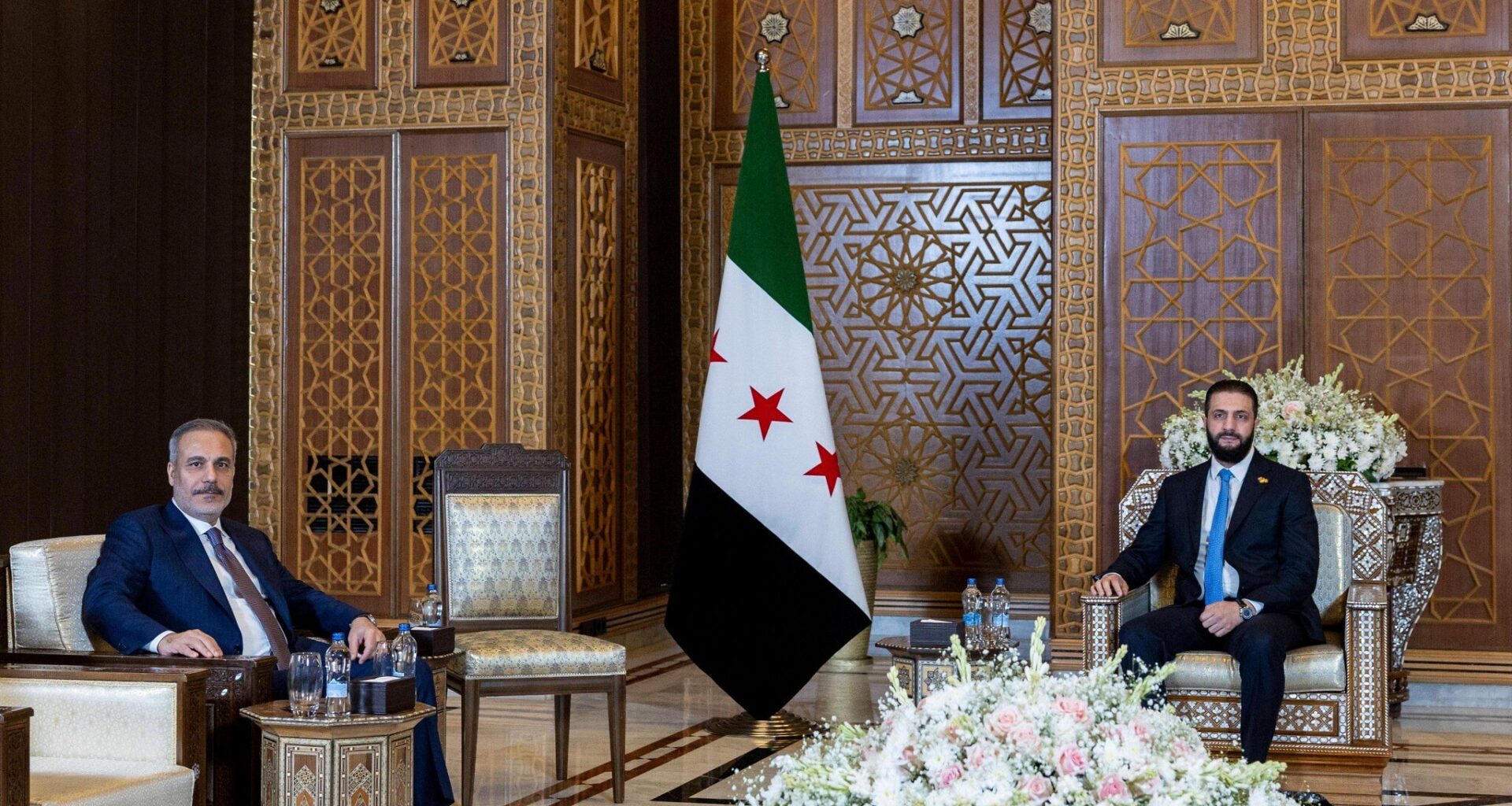Turkish Foreign Minister Hakan Fidan reaffirmed Ankara’s support for Syria’s stability and reconstruction following a meeting on Thursday with Syrian interim President Ahmad al-Sharaa in Damascus.
In a statement posted on X, Fidan pledged continued support for Syria’s fight against extremist groups, and reiterated Turkey’s readiness to help manage camps in northeastern Syria that house people with alleged ties to the militant Islamic State group.
“The Syrian government is… tackling many challenges to make the country safer, more stable, and prosperous. The international community, particularly the United States and European countries, is providing significant support,” the minister said.
“Israel, on the other hand, is pursuing a policy of destabilizing our region,” he continued, adding that thwarting Israel’s policies was “a shared responsibility of the international community.”
Ankara has been a strong backer of the interim government in Damascus since former Syrian president Bashar Assad was toppled in a lightning rebel offensive in December. It was Fidan’s third visit to Damascus since Assad’s fall.
Syria last month requested Turkey’s support to strengthen its defense capabilities following sectarian violence that increased tensions in the country and drew Israeli intervention.

Syrian Bedouin families ride in the back of trucks carrying their belongings, in a convoy led by Red Crescent vehicles in Busra al-Harir, heading to Daraa after being evacuated from Sweida following more than a week of violent clashes, July 21, 2025. (Malek Khattab/AP)
Clashes erupted last month between members of Bedouin tribes and armed factions from the Druze religious minority in Syria’s southern Sweida province. Government forces that intervened, ostensibly to quell the fighting, ended up siding with the Bedouins.
Israel then launched strikes on government convoys in Sweida and the Defense Ministry headquarters in Damascus, saying it was acting to protect the Druze.
Also, last December, Israel launched hundreds of strikes on military sites immediately following Assad’s overthrow, saying at the time it wanted to prevent weapons from falling into the hands of the new authorities it considers jihadists.
Turkey has been vocally critical of Israeli intervention in Syria and also wants to curb the influence of the Kurdish groups controlling northeastern Syria.
The Kurdish-led Syrian Democratic Forces has been a key US ally in the fight against the Islamic State extremist group, but Ankara regards the SDF as a terrorist group because of its ties to the Kurdistan Workers’ Party, which waged a decades-long insurgency in Turkey.

A man walks past a mural depicting supporters of the Syrian Democratic Forces (SDF), one of them raising a flag showing the face of Abdullah Ocalan — founding member of the militant Kurdistan Workers’ Party (PKK) outlawed by Turkey, in Syria’s northeastern city of Qamishli on December 16, 2024. (Delil Souleiman / AFP)
In March, the SDF and Damascus reached an agreement to merge their forces, but its details were vague and the deal has not been implemented.
Turkish defense ministry officials, speaking on condition of anonymity in accordance with regulations, accused the SDF Thursday of not following through on its commitment, adding that Ankara remains “committed to supporting the Syrian administration’s fight against terrorist organizations and to providing the requested training, advisory, and technical assistance to strengthen its defense and security capacity.”
Developments in Syria have increased tensions between Turkey and Israel, which is occupying the former no-man’s land adjacent to its border as a buffer zone.
In April, Israel struck five cities in Syria, including more than a dozen strikes near a strategic air base in the city of Hama, where Turkey reportedly has interests in having a military presence. Israel accused Turkey of trying to build a “protectorate” in Syria.
That month, Turkey and Israel held talks on creating a deconfliction mechanism in Syria that would avoid clashes between the two countries. They reportedly reached an agreement following a month of talks.
Times of Israel staff contributed to this report.

